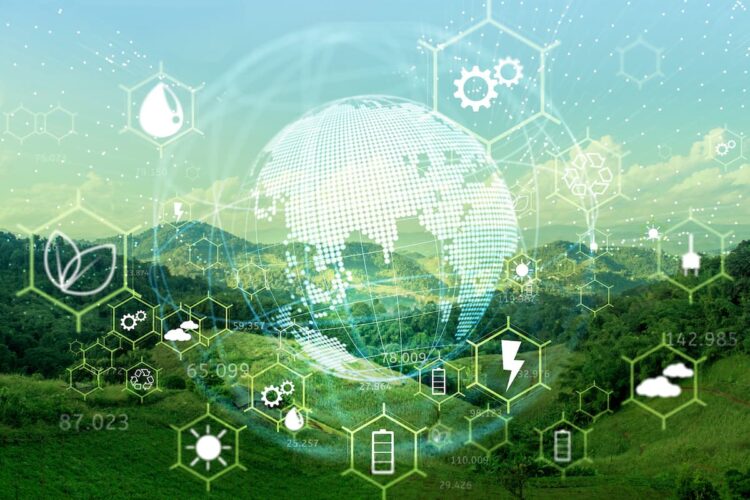[ad_1]
Revolutionizing Sustainability: The Future of Environmental Technologies
In today’s world, the importance of sustainability and environmental conservation has never been more pressing. With climate change looming over us, it is imperative that we take action to protect our planet for future generations. One of the key ways in which we can achieve this is through the development and implementation of cutting-edge environmental technologies. These technologies have the power to revolutionize the way we interact with our environment, making it easier and more efficient to live in a sustainable manner.
The Rise of Environmental Technologies
Over the past few decades, there has been a significant increase in the development of environmental technologies. These technologies encompass a wide range of solutions, from renewable energy sources to waste management systems. One of the key driving factors behind this surge in innovation is the growing awareness of the impact that human activities are having on the environment. Governments, businesses, and individuals are all recognizing the need to take action to reduce their carbon footprint and minimize their impact on the planet.
Renewable Energy Sources
One of the most important areas of focus for environmental technologies is renewable energy sources. As we move away from fossil fuels and towards cleaner, more sustainable energy sources, technologies such as solar panels, wind turbines, and hydroelectric power plants are becoming increasingly important. These technologies have the potential to drastically reduce our reliance on non-renewable energy sources and lower our carbon emissions.
Solar Energy
Solar energy is one of the most promising renewable energy sources currently available. By harnessing the power of the sun, we can generate electricity in a clean and sustainable manner. Solar panels are becoming more affordable and efficient, making them an attractive option for homeowners, businesses, and governments looking to reduce their carbon footprint.
Wind Energy
Wind energy is another important renewable energy source that is gaining popularity around the world. Wind turbines can be installed both onshore and offshore, providing a consistent and reliable source of electricity. As technology continues to improve, wind energy is becoming more cost-effective and efficient, making it an increasingly attractive option for countries looking to transition to cleaner energy sources.
Hydroelectric Power
Hydroelectric power has long been a staple of renewable energy production. By harnessing the power of flowing water, hydroelectric power plants can generate electricity without producing any harmful emissions. While there are some environmental concerns associated with hydroelectric power, such as the impact on local ecosystems, advances in technology are helping to mitigate these issues and make hydroelectric power a more sustainable option.
Waste Management Technologies
In addition to renewable energy sources, environmental technologies are also being developed to improve waste management practices. As the global population continues to grow, the amount of waste we produce is also increasing. Traditional waste management methods, such as landfilling and incineration, are not sustainable in the long term. This has led to the development of innovative technologies that aim to reduce, reuse, and recycle waste in a more efficient and environmentally friendly manner.
Recycling Technologies
Recycling technologies play a crucial role in reducing the amount of waste that ends up in landfills. By processing and reusing materials such as plastics, glass, and paper, recycling technologies help to conserve natural resources and reduce the need for new production. Advanced sorting and processing technologies are making recycling more efficient and cost-effective, making it an increasingly attractive option for waste management.
Waste-to-Energy
Waste-to-energy technologies are another important development in the field of waste management. By converting waste materials into energy, such as electricity or heat, these technologies help to reduce the amount of waste that ends up in landfills while also generating a valuable resource. While there are some environmental concerns associated with waste-to-energy technologies, such as air pollution and greenhouse gas emissions, advances in technology are helping to minimize these impacts and make waste-to-energy a more sustainable option.
Composting
Composting is a simple yet effective waste management technique that helps to reduce the amount of organic waste that ends up in landfills. By breaking down organic materials such as food scraps and yard waste, composting technologies produce nutrient-rich compost that can be used to fertilize soils and improve plant growth. Composting is a cost-effective and environmentally friendly way to manage organic waste, making it an attractive option for individuals, businesses, and municipalities.
The Future of Environmental Technologies
As we look towards the future, the potential for environmental technologies to revolutionize sustainability is truly exciting. With ongoing research and development efforts, we can expect to see even more innovative solutions emerge in the coming years. From advanced energy storage systems to smart waste management technologies, the future of environmental technologies holds great promise for a more sustainable and environmentally friendly world.
Advanced Energy Storage
One of the key challenges facing renewable energy sources is their intermittent nature. Solar panels only generate electricity when the sun is shining, and wind turbines only produce energy when the wind is blowing. Advanced energy storage technologies, such as batteries and fuel cells, are being developed to store excess energy generated by renewable sources for use when demand is high or when conditions are not optimal. These technologies help to address the issue of energy storage and ensure a reliable and consistent supply of electricity from renewable sources.
Smart Grid Technologies
Smart grid technologies are another important development in the field of energy management. By integrating advanced communication and control systems into the electricity grid, smart grid technologies help to optimize energy distribution and consumption. This can lead to increased efficiency, reduced energy waste, and lower carbon emissions. Smart grid technologies also enable the integration of renewable energy sources into the grid, making it easier to transition to a more sustainable energy system.
Artificial Intelligence
Artificial intelligence (AI) is playing an increasingly important role in environmental technologies. By analyzing vast amounts of data and identifying patterns and trends, AI can help to optimize energy consumption, improve waste management practices, and enhance environmental monitoring. AI algorithms can also be used to predict and prevent environmental disasters, such as wildfires and floods, helping to protect both the environment and human populations.
Internet of Things
The Internet of Things (IoT) is another technology that is revolutionizing sustainability. By connecting devices and sensors to the internet, IoT technologies enable real-time monitoring and control of environmental parameters. This can help to optimize energy usage, reduce waste, and improve resource management. IoT technologies also enable the development of smart cities, where infrastructure and services are optimized for sustainability and efficiency.
Conclusion
Environmental technologies have the potential to revolutionize sustainability and help us protect our planet for future generations. From renewable energy sources to waste management technologies, the innovations being developed today are paving the way for a more sustainable and environmentally friendly future. By investing in research and development and implementing these technologies on a global scale, we can create a world where humans and nature can coexist in harmony.
[ad_2]












